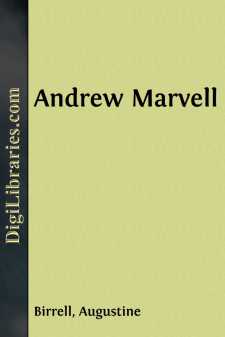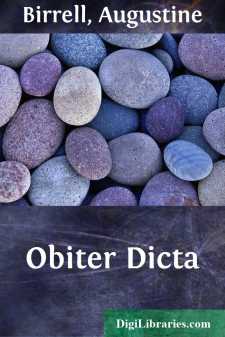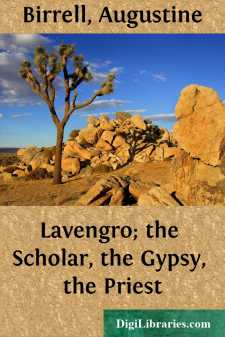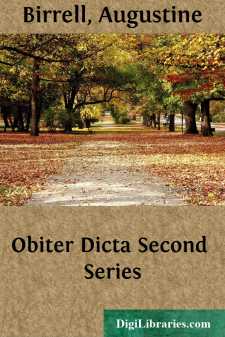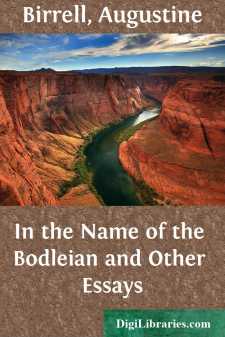Categories
- Antiques & Collectibles 13
- Architecture 36
- Art 48
- Bibles 22
- Biography & Autobiography 813
- Body, Mind & Spirit 142
- Business & Economics 28
- Children's Books 17
- Children's Fiction 14
- Computers 4
- Cooking 94
- Crafts & Hobbies 4
- Drama 346
- Education 46
- Family & Relationships 57
- Fiction 11829
- Games 19
- Gardening 17
- Health & Fitness 34
- History 1377
- House & Home 1
- Humor 147
- Juvenile Fiction 1873
- Juvenile Nonfiction 202
- Language Arts & Disciplines 88
- Law 16
- Literary Collections 686
- Literary Criticism 179
- Mathematics 13
- Medical 41
- Music 40
- Nature 179
- Non-Classifiable 1768
- Performing Arts 7
- Periodicals 1453
- Philosophy 64
- Photography 2
- Poetry 896
- Political Science 203
- Psychology 42
- Reference 154
- Religion 513
- Science 126
- Self-Help 84
- Social Science 81
- Sports & Recreation 34
- Study Aids 3
- Technology & Engineering 59
- Transportation 23
- Travel 463
- True Crime 29
Augustine Birrell
Augustine Birrell (1850–1933) was a British writer, lawyer, and politician known for his wit and literary criticism. He served as Chief Secretary for Ireland from 1907 to 1916, a tenure marked by the controversial handling of the Easter Rising. Birrell was also a respected essayist, with works like "Obiter Dicta" showcasing his eloquent prose and keen insights on literature and life.
Author's Books:
Sort by:
CHAPTER I EARLY DAYS AT SCHOOL AND COLLEGE The name of Andrew Marvell ever sounds sweet, and always has, to use words of Charles Lamb’s, a fine relish to the ear. As the author of poetry of exquisite quality, where for the last time may be heard the priceless note of the Elizabethan lyricist, whilst at the same moment utterance is being given to thoughts and feelings which reach far forward to...
more...
CARLYLE The accomplishments of our race have of late become so varied, that it is often no easy task to assign him whom we would judge to his proper station among men; and yet, until this has been done, the guns of our criticism cannot be accurately levelled, and as a consequence the greater part of our fire must remain futile. He, for example, who would essay to take account of Mr. Gladstone, must...
more...
The author of Lavengro, the Scholar, the Gypsy, and the Priest has after his fitful hour come into his own, and there abides securely. Borrow’s books,—carelessly written, impatient, petulant, in parts repellant,—have been found so full of the elixir of life, of the charm of existence, of the glory of motion, so instinct with character, and mood, and wayward fancy, that their very names are...
more...
I am sorry not to have been able to persuade my old friend, George Radford, who wrote the paper on ‘Falstaff’ in the former volume, to contribute anything to the second series of Obiter Dicta. In order to enjoy the pleasure of reading your own books over and over again, it is essential that they should be written either wholly or in part by somebody else. Critics will probably be found ready to...
more...
'IN THE NAME OF THE BODLEIAN' With what feelings, I wonder, ought one to approach in a famous University an already venerable foundation, devoted by the last will and indented deed of a pious benefactor to the collection and housing of books and the promotion of learning? The Bodleian at this moment harbours within its walls well-nigh half a million of printed volumes, some scores of...
more...


